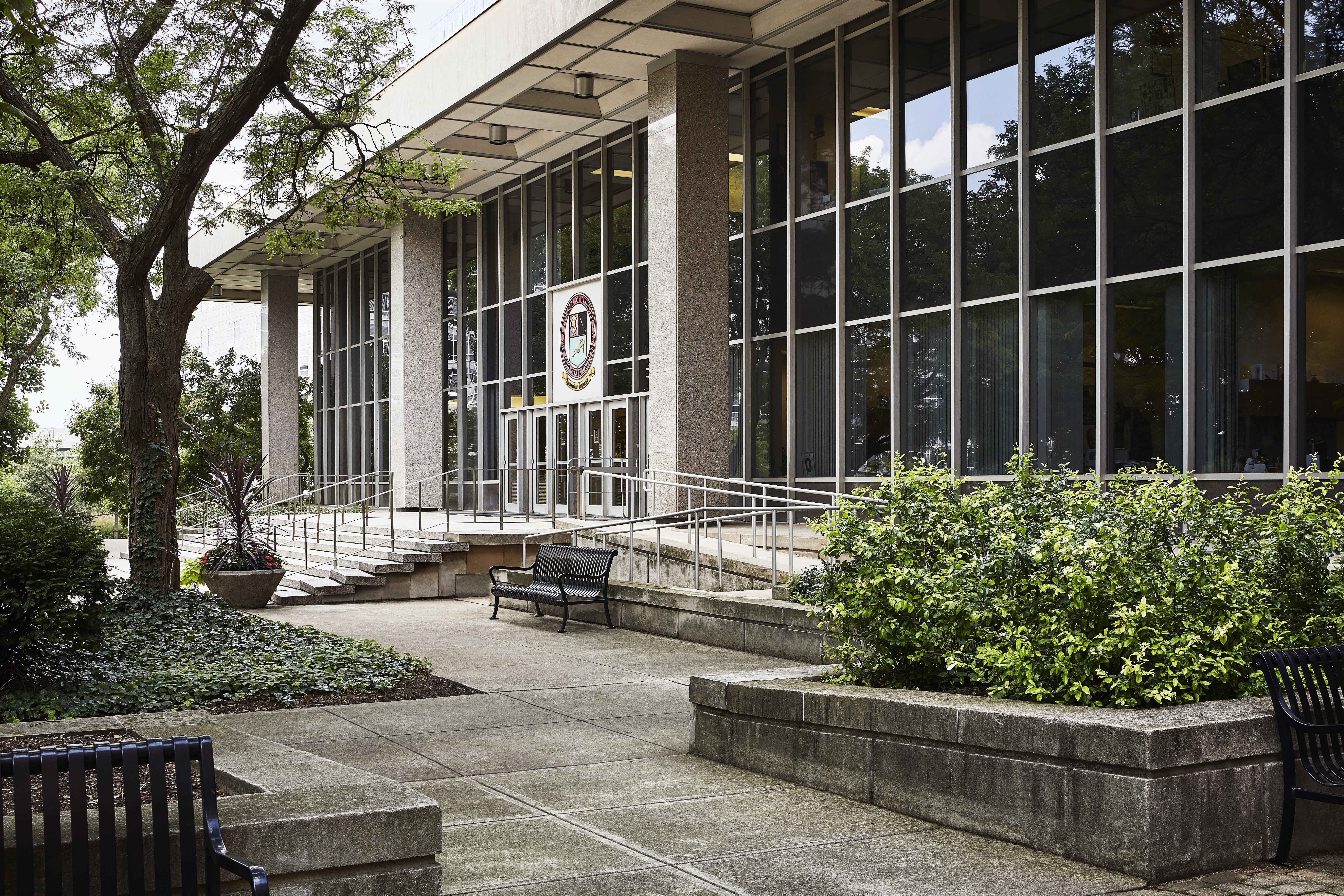
Two students were arrested outside of Meiling Hall on a charge of criminal trespassing at a rally for divestment and university democracy Tuesday. Credit: Lantern File Photo
Following a series of protests surrounding divestment, students voice that they are not backing down. Confusion as a result of the arrests of two students have led university officials to respond to lingering questions.
The students were arrested on a charge of criminal trespassing at a rally for divestment and university democracy relating to the war in Gaza outside Meiling Hall Tuesday.
They were among a crowd of about 50 who marched from Browning Amphitheater to Meiling Hall, where a board of trustees meeting was scheduled. The police report states that a university official informed the students of Ohio State’s restrictions on noise at the first location and again outside of Meiling Hall where students began chanting.
Ohio State Police Department Deputy Chief Dennis Jeffrey then warned students that if they did not leave the area, they would be arrested. The first student “failed to leave the area and failed to stop disrupting,” according to the police report.
About a half hour later, the police report states that another warning was issued. The second student failed to disperse and was also placed under arrest.
Both students were transported to the Franklin County Jail for processing. The Lantern reached out to the students for comment but has not yet received a response.
Isabella Guinigundo, communications chair for Ohio Youth for Climate Justice — one of the groups who organized the protest — said the protesters were told by the police that they were being too loud and disrupting events happening inside the building.
Outside, the group was holding a “people’s board meeting” after learning the board of trustees meeting had been canceled. Demonstrators conducted mock votes on resolutions for divestment from Israel and fossil fuels, cheering once the group reached a consensus on the issues.
Afterward, Guinigundo said officers approached students in the crowd, pulling them out and arresting them. Videos of the protests show officers waving to one another, leaving the steps of the building, and approaching students in the crowd.
Guinigundo said the arrests have not deterred organizers from demonstrating.
“We want to send a clear message to OSU that their actions today don’t want to make us hold back at all,” Guinigundo said. “And in fact, they just strengthen the movement.”
Basis for the arrests
University spokesperson Ben Johnson said the arrests were made due to the group’s volume level, which disrupted a meeting in the lobby of Meiling Hall where contributors to an arts magazine were gathered.
The university’s space rules define disruptive noise as sound that interferes with the function of the university, including “amplified sound and other loud noise that is audible more than 50 feet from the source of the sound and/or noise occurring during the restricted hours above.”
The university will likely take action if students in the surrounding area feel disrupted, as Johnson said the decision is not “simply a measurement.”
“Whether it’s one person or 10 people or 20 people that people feel disrupted, if they feel unsafe, if they feel like they’re being harassed, there’s a legal determination to be made,”
Johnson said.
The university’s space rules
The university’s space rules are in effect year-round, but Johnson said they can be enforced more heavily during finals week. The university may “require reasonable time, place and manner limitations be placed on usage to ensure that the usage does not disrupt the University’s mission, administrative functions, or other campus-life activities.”
“One: every building is different, and two: time does matter. And Reading Day is different from a normal day, exam week is different from a normal week here,” Johnson said.
Hours before the protest, Senior Vice President for Student Life Melissa Shivers sent an email to the university community warning of stricter enforcement of these rules.
The rules state that noise is restricted Monday through Friday before 5:30 p.m. and after 10 p.m.
This story was updated on April 25 at 11:54 a.m. to state that the students were arrested on a charge of criminal trespassing, not convicted.


